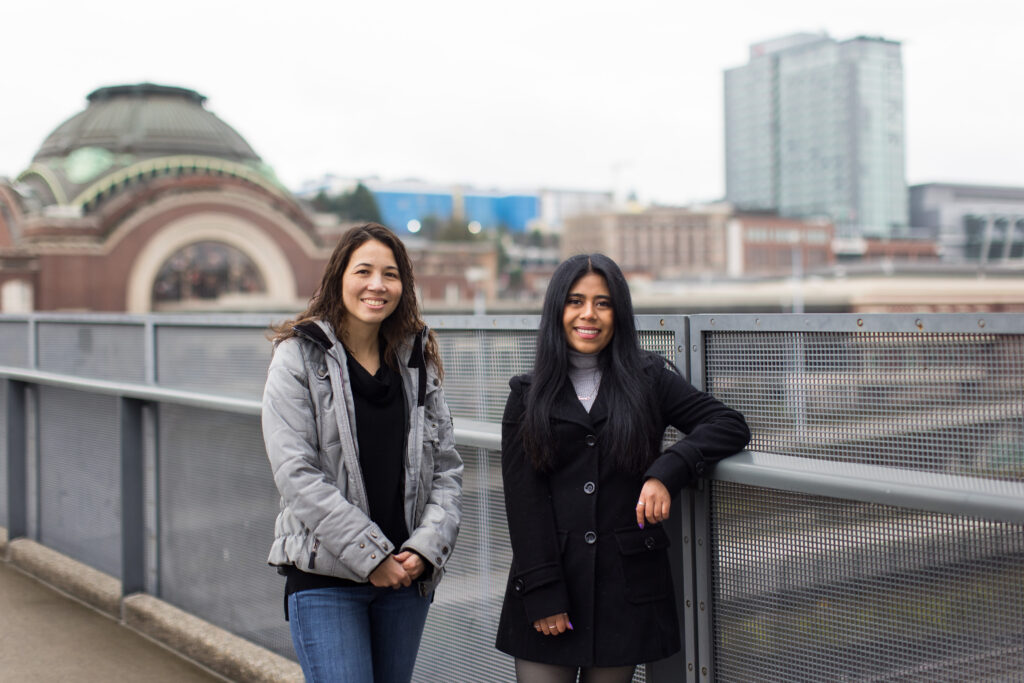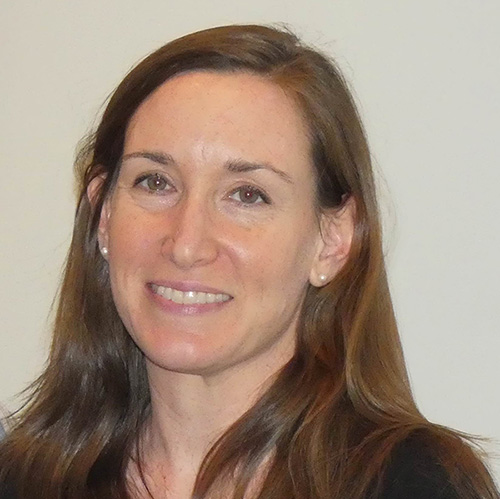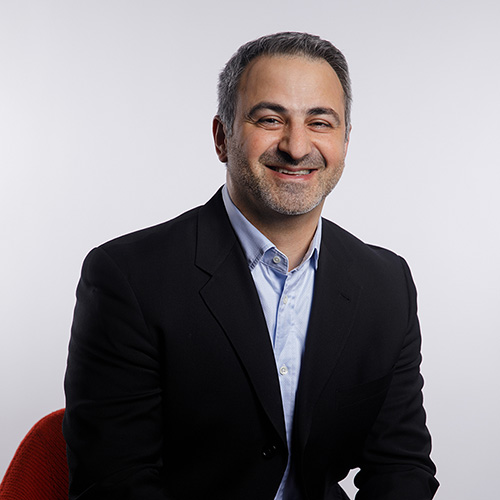
People in desperate situations get legal help from an unexpected source
She was abused and often felt afraid. Her family couldn’t afford school, so she dropped out and left their Guatemalan village to work as a maid and send money home to buy food for her younger siblings, keeping just enough to treat herself to occasional candy. After all, she was only 12.
But over the past decade, Enni Ramirez walked across a desert, learned a new language, earned top grades at her new school and volunteered her nursing skills for hospice care in her new community. Now she is just a few college classes shy of becoming an X-ray technician.
Her path to safety got a boost from a place she never expected. Lawyers who work at Microsoft volunteered as her legal representatives for five years, shepherding Ramirez through the U.S. immigration system so she could obtain a green card and a new, promising life. She’s one of more than 200 people helped each year through the tech company’s Pro Bono program, which encourages employees to volunteer their time to provide free legal assistance to people in challenging situations, from kids fleeing violence to domestic abuse victims to veterans trying to access benefits.
“I’ve been through a lot,” Ramirez says. “I got very lucky. I don’t think I would have had my papers if I didn’t have a lawyer. They really make big changes in people’s lives.”

To gain Special Immigrant Juvenile Status and become a lawful permanent resident, Ramirez had to establish that she had been abused, abandoned or neglected by a parent. It’s a formidable, complex process that can take years for all the filings and hearings to be completed. Yet every year, 150,000 unaccompanied children — even babies — are thrust before U.S. judges on their own, often after traumatic escapes from violence, and asked questions through a language interpreter about complicated matters.
Their reality moved Microsoft Vice Chair and President Brad Smith to team up with actress and human rights activist Angelina Jolie in 2008 to found Kids in Need of Defense (KIND). Immigration judges are more than 100 times more likely to rule in favor of unaccompanied children when they’re represented in court by lawyers, according to a September 2021 Congressional Research Service report. By working with attorneys from law firms and corporations who offer their services on a pro bono basis, KIND has helped more than 30,000 kids who have found themselves in a foreign country without a parent or guardian.
“The dedication and support provided by Microsoft volunteers makes all the difference in these kids’ ability to seek protection and begin their lives anew in the United States,” says KIND President Wendy Young, who has led the organization since shortly after its founding.
Microsoft started the Pro Bono program in 2003, and the effort accelerated four years ago when the company hired a full-time director — a position that’s common in law firms but unusual in a corporation. When Beth Henderson took on that role, she expanded and diversified the scope to include representing journalists and military veterans, partnering with the Seattle Clemency Project, creating a virtual help clinic for domestic violence victims, and expanding access to legal knowledge and resources.
The company has also broadened the Pro Bono volunteer base to include Microsoft business professionals, not just attorneys. While a law degree is necessary to provide direct legal services to people who can’t afford a lawyer, professionals with other backgrounds can help expand access to justice by working alongside licensed attorneys and providing support such as translating, business mentoring and résumé writing.

“Protecting people’s fundamental rights is a priority for Microsoft,” says Henderson, who has a background in immigration law and was attracted to the tech company by Smith’s efforts on behalf of unaccompanied immigrant children.
In the U.S. legal system, attorneys are not provided for civil cases such as immigration proceedings, matters related to veterans or domestic violence protection order hearings. The majority of low-income Americans needing help to resolve legal issues each year do not get any or enough assistance, resulting in a vast crisis that requires scalable solutions, Henderson says.
Microsoft employees with technical skills and experience have gotten involved through Hackathon projects and developed Microsoft technology solutions that help scale to address the crisis and reduce barriers to accessing legal assistance.
Ramirez was 16 and living in a foster home in Olympia, Washington, by the time a charity connected her to KIND and to Megan Yoshimura, a senior attorney for Microsoft who volunteered her time and expertise to the case. The teen could barely speak English and hadn’t been to school in four years. She was terrified of the U.S. legal process and of being sent back to Guatemala.
With her foster mom’s support, Ramirez enrolled as a high school freshman. She sat at the kitchen table for five hours every night trying to learn English while translating her homework. Those efforts paid off, and before long she was fluent enough to volunteer at a nursing home and take classes at a local community college. That’s where she used her first computer, she says, and finally realized “what Microsoft meant.”
“When I did the research about it, I was like, Microsoft is the technology place, so how does this work?” Ramirez says. “I felt very safe and very grateful that they were able to help me.”
Yoshimura says she could tell Ramirez was special from the start.
“Enni is one of the most optimistic clients I’ve ever had,” Yoshimura says. “She always looks for opportunity and looks for ways to make the world better for herself and the people around her.”
Yoshimura’s own family history, with a lack of access to justice, is what drew her to law school and to immigration law before joining Microsoft. Her grandparents, who had been born in the U.S. and were of Japanese descent, had been imprisoned in the Manzanar internment camp in California during World War II. The multiple grocery stores they’d owned in Los Angeles were confiscated by the U.S. government, devastating the family’s livelihood.
“Part of my identity growing up was understanding from my family what it means to be incarcerated for no reason other than what you look like and the heritage and culture of your family,” she says.

The legal profession has a longstanding history of serving society by volunteering time and skills to those who don’t have access to justice, and that commitment intertwines with Microsoft’s corporate culture and legacy, says Hossein Nowbar, the company’s general counsel of corporate legal affairs and the executive sponsor of the Pro Bono program.
“We lean in and accept the fact that if you’re going to benefit from society, you need to give back to society,” says Nowbar, who immigrated to the U.S. from Iran as a child. “Our technology is changing the world, and that can’t be one-dimensional.”
Henderson and her team are researching how technology such as AI could help maximize the human hours volunteered and deliver more efficient legal services.
“This isn’t the pro bono model of the past,” Henderson says. “We are innovating every day so we can serve more pro bono clients like Enni through the thoughtful and informed development and integration of technology solutions.”
Learn more about Microsoft’s most recent pro bono work in the 2022 Pro Bono annual report.
Top photo: Megan Yoshimura (left) and Enni Ramirez in Tacoma, Washington (Photo by Dan DeLong)
